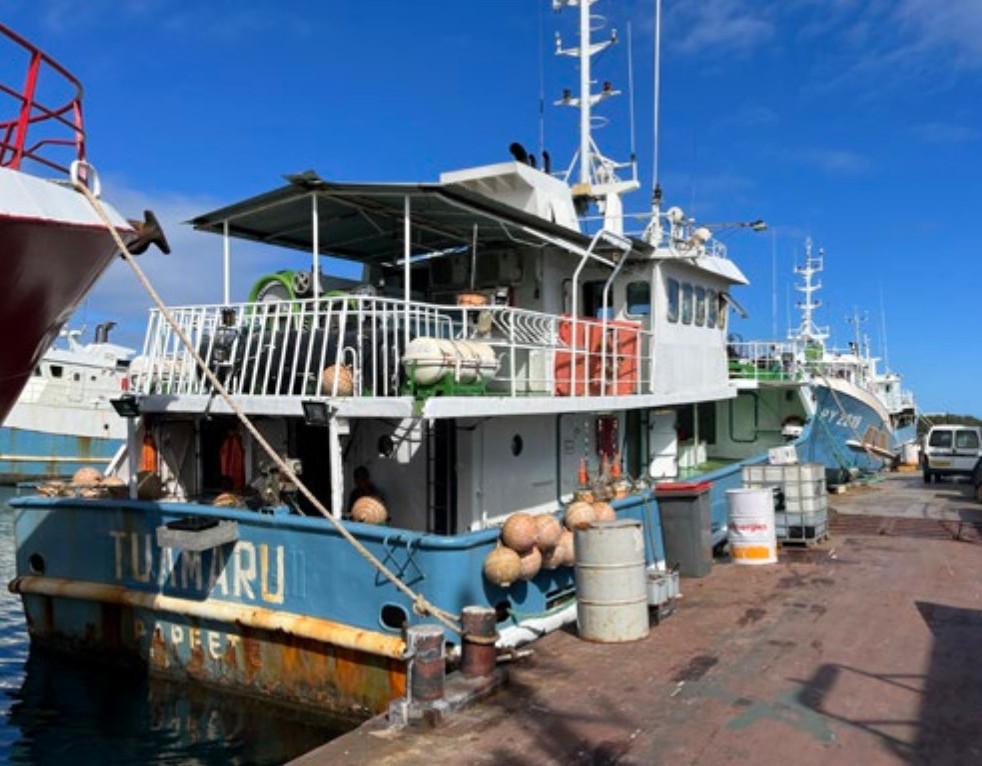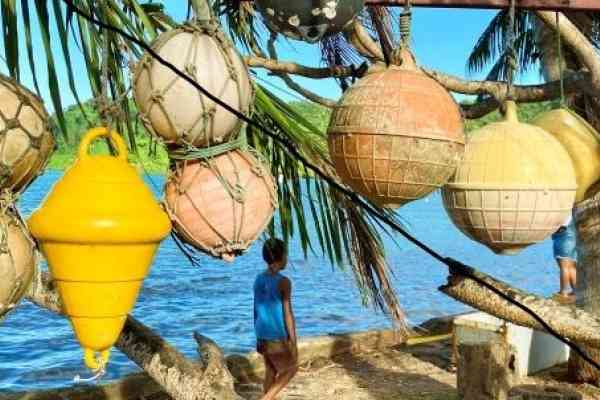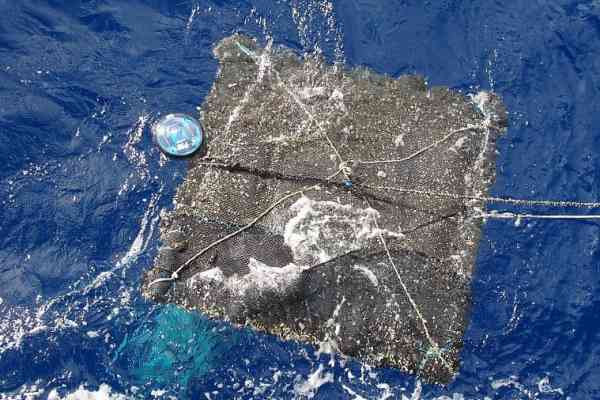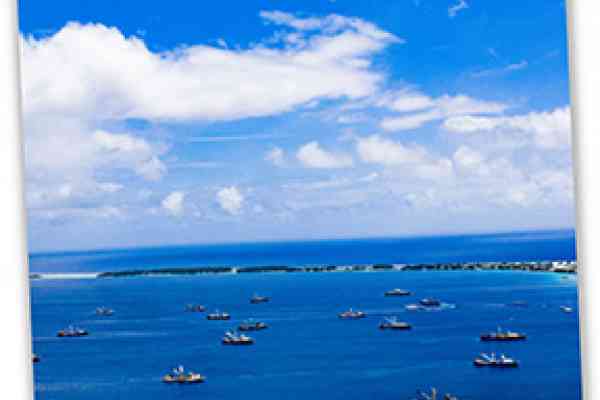French Polynesia, a paradise of azure waters and pristine beaches, has been facing a complex challenge in recent years – the coexistence of its growing offshore tuna fishery and the existing artisanal fishery sector. This delicate balance requires a nuanced understanding of the interactions between these two vital components of the region’s economy, ecology, and subsistence.
The growth of the offshore tuna fishery
French Polynesia has witnessed a steady increase in the number of offshore longline fishing boats (from 40 in 2000 to 80 vessels nowadays). These vessels are primarily deployed to target tuna, highly sought-after species for global seafood markets. Although there are no fishing area limitations for the offshore fleet, they generally fish beyond 15 nautical miles from shore. This industry plays a crucial role in providing economic opportunities and supporting local livelihoods.
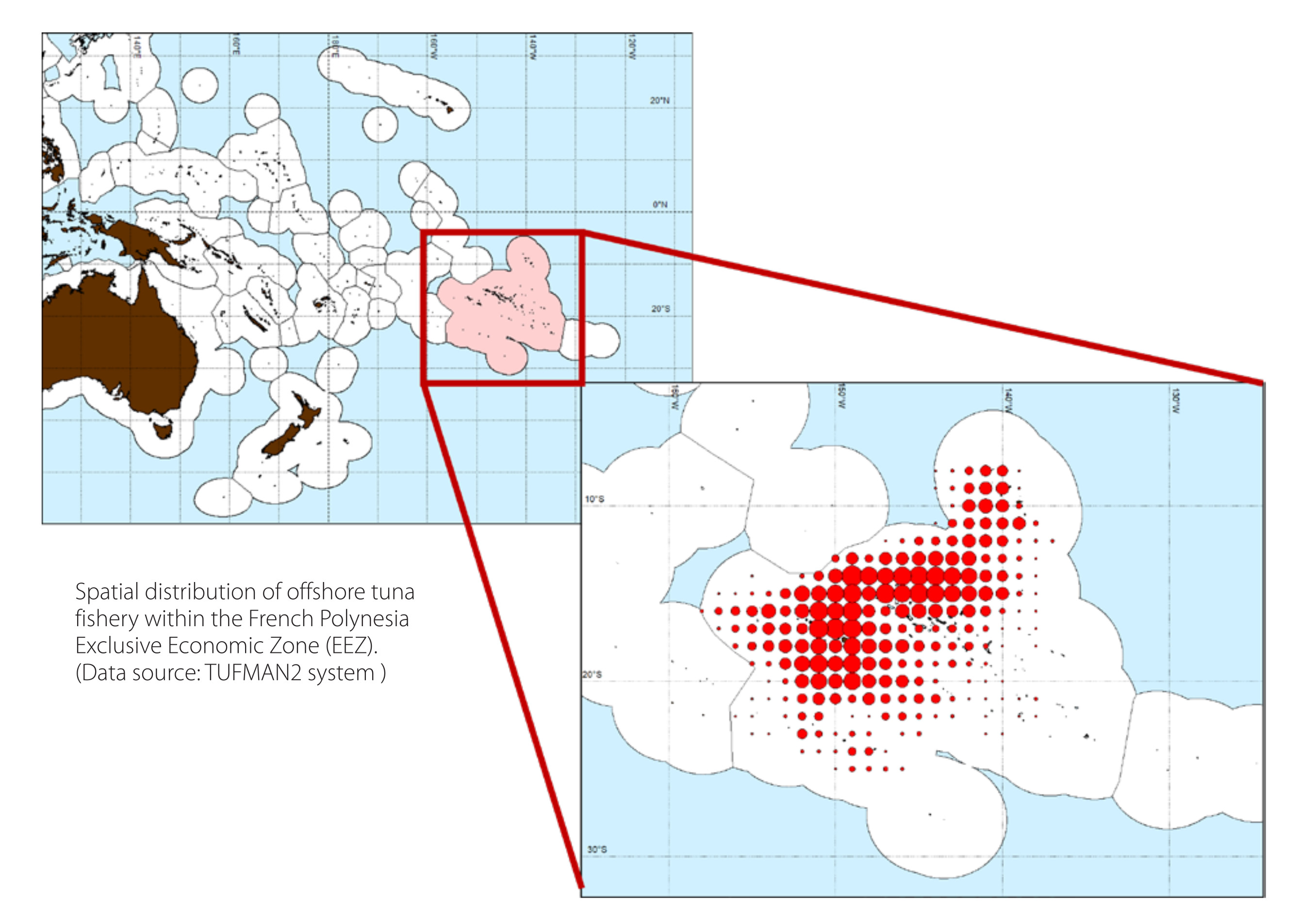
Artisanal fishery: smaller boats, bigger impact
 On the other hand, the artisanal fishery sector, consisting of smaller boats such as bonitier (10 to 13m long) and poti marara boats (6 to 9m long) (1000+ boats in 2022), is also targeting tuna, alongside other coastal species (e.g., mahi-mahi, wahoo and snappers). The authorised fishing area for these artisanal boats is limited to a 15 nautical mile radius from the coast. However, artisanal fishermen find this limited area too restrictive for their activity, and they occasionally venture into the domain of offshore longliners, leading to potential conflicts and competition for resources.
On the other hand, the artisanal fishery sector, consisting of smaller boats such as bonitier (10 to 13m long) and poti marara boats (6 to 9m long) (1000+ boats in 2022), is also targeting tuna, alongside other coastal species (e.g., mahi-mahi, wahoo and snappers). The authorised fishing area for these artisanal boats is limited to a 15 nautical mile radius from the coast. However, artisanal fishermen find this limited area too restrictive for their activity, and they occasionally venture into the domain of offshore longliners, leading to potential conflicts and competition for resources.
Tensions and calls for expanision
The interactions between offshore longliners and artisanal fishers have sometimes escalated into conflicts within the 15 nautical mile zone. There have been instances where artisanal fishers discovered longliners operating in their designated zone and resorted to cutting their lines out of frustration and the need to protect their livelihoods. These confrontations underscore the complexities of shared fishing territories. In response to these challenges, artisanal fishers are now advocating for an extension of their current 15-mile zone to provide them with more exclusive access to these nearshore waters. This call for expansion reflects the pressing need for effective regulations and compromise to ensure the coexistence of both fishing sectors while safeguarding their interests.
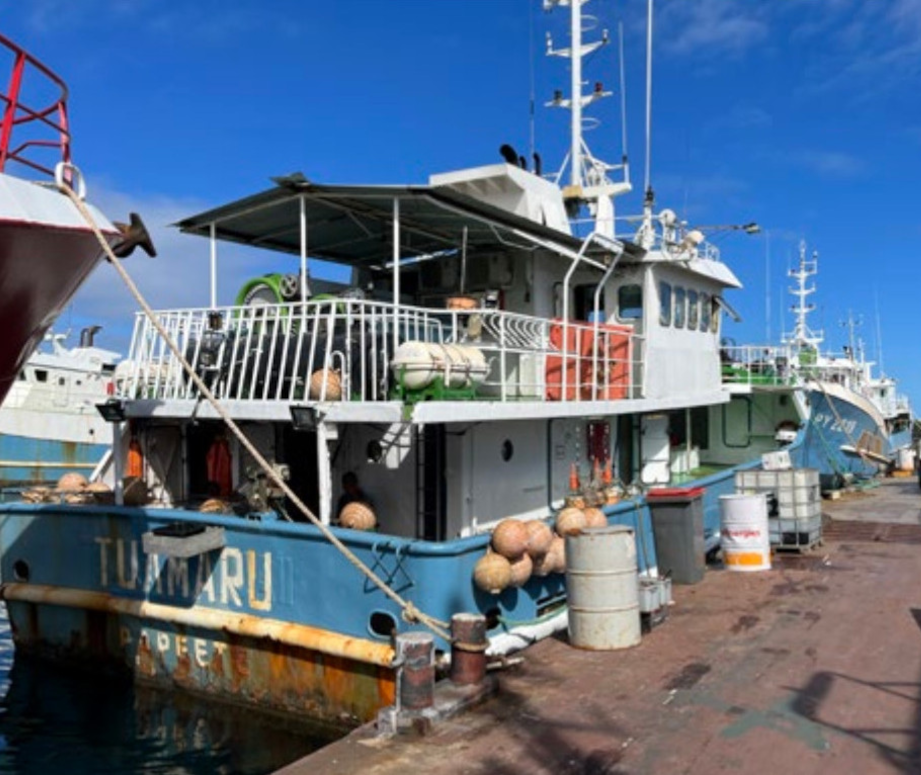

Government’s call for analysis
Recognising the need for effective resource management, the French Polynesian government has been actively involved in understanding the dynamics between the two fishing sectors. They have previously requested the support of SPC to carry out a bio-economic analysis of the longline fleet. However, the current focus has shifted towards evaluating the extent of interactions between offshore and artisanal fleets in shared fishing zones. The key aspects to be examined include the area of fishing, the species caught, and the feasibility of introducing zone-based regulations for offshore vessels.
Challenges in data management
Analysing the historical fishing activity (and associated data) is essential for a better understanding of the interactions between these fleets. One of the significant hurdles in conducting these analyses is the state of artisanal fishing data in French Polynesia. While there is a wealth of historical data, the quality/state of the information is insufficient to address the questions being asked by the government. To address this issue, a collaborative effort, involving an indepth data cleaning process, was undertaken by the Marine Resources Department (Direction des Ressources Marines – DRM) and SPC staff.
The historical dataset that was reviewed during this process, originally available from an MS Access database, contained fishing records from 1997 to the present day. The cleansing process, which took one week and involved close collaboration with several DRM staff, attempted to standardise some of the data sets (e.g. fishing areas and species, originally recorded as free text), identify and address missing information (e.g. vessel definitions and landing sites), and ultimately import the artisanal data into the SQL Server based TUFMAN 2 system to ensure usability.
This effort is critical for subsequent studies, as the improved precision of fishing locations, the rationalisation of species codes and fishing techniques, and the availability of these data in a standardised way, will provide a useful history of the temporal and spatial dynamics of artisanal fishing activities, offering valuable insights into trends over time.
The coexistence of offshore tuna fishing and artisanal fisheries in French Polynesia represents a delicate balance between economic progress, ecological sustainability, and cultural livelihoods. The growth of the offshore tuna fishery, catering to global markets, has brought economic opportunities to the region, but it has also interacted with the traditional artisanal sector, causing friction and competition for the resources.
SPC involvement in analysing these interactions signals a commitment from the French Polynesian government to finding a balanced solution for achieving harmony between these fishing sectors’ demands. Only through such comprehensive efforts can French Polynesia sustainably navigate the coexistence of these vital components of its marine ecosystem and economy.
For more information:
Emmanuel Schneiter, Regional Fisheries Data Manager, SPC | [email protected]
Steven Hare, Senior Fisheries scientist (National and Sub - Regional Team Leader), SPC | [email protected]
Download the full SPC Fisheries Newsletter: https://bit.ly/FNL172
